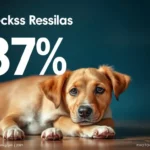
Introduction
The Yulin Dog Festival is an annual event held in Yulin, Guangxi Province, China, that has sparked heated debates across the globe. This festival, which takes place around the summer solstice, typically in June, celebrates a long-standing tradition in certain regions of China where dog meat is consumed. Despite its cultural roots, the festival has become synonymous with animal rights controversies, drawing criticism from international activists and sparking discussions about ethical eating practices.
This article aims to provide an in-depth look at the Yulin Dog Festival, exploring its history, cultural significance, and the controversies that surround it. By understanding the complexities of this festival, we can better appreciate the intersection of culture, animal rights, and lifestyle choices that it represents.
Understanding the Yulin Dog Festival
Historical Background
The origins of the Yulin Dog Festival can be traced back several decades, with local traditions in certain parts of China encompassing the consumption of dog meat during the summer months. Historically, it was believed that eating dog meat could bring health benefits, especially during the hot summer days, as it was thought to help cool the body.
As the festival evolved, it began to attract more attention from outside observers, leading to a shift in public perception. While some locals continue to view the festival as a celebration of their heritage, many others see it as an outdated practice in light of changing global attitudes towards animal rights.
Festival Activities
During the Yulin Dog Festival, various activities take place, including dog meat vendors selling their products, cooking competitions, and festivities that draw both locals and tourists. The festival is marked by a variety of dishes prepared from dog meat, with local vendors showcasing different preparation methods.
The types of dogs involved often include local breeds, and the methods of preparation can vary widely, from grilling to stewing. While the festival is a significant source of income for some local businesses, it is also a focal point for animal rights activists who protest against the treatment of the dogs.
Cultural Perspectives
Local Traditions and Beliefs
In certain regions of China, dog consumption is deeply embedded in cultural practices. For many, the Yulin Dog Festival represents a long-standing tradition that has been passed down through generations. Traditional beliefs often hold that dog meat possesses health benefits, particularly in terms of enhancing stamina and vitality.
Despite these beliefs, attitudes towards dog consumption are gradually shifting, particularly among younger generations who may be influenced by globalization and changing societal norms.
Changing Attitudes
As animal rights movements gain momentum globally, younger Chinese citizens are beginning to question the ethical implications of consuming dog meat. Many are adopting vegetarian or vegan lifestyles, leading to a notable shift in culinary preferences. This evolution in dietary choices reflects a broader movement towards animal welfare and ethical consumption.
Comparatively, other cultures also have unique food practices that can be controversial. For instance, the consumption of certain animals, like horses or cats, is frowned upon in some societies but accepted in others. This highlights the need for cultural sensitivity when discussing practices like those seen at the Yulin Dog Festival.
Controversies Surrounding the Festival
Animal Rights Activism
The Yulin Dog Festival has become a focal point for animal rights activists both within China and around the world. Organizations such as the Humane Society International and PETA have launched campaigns to raise awareness about the treatment of dogs during the festival. Protests often take place, aiming to draw attention to the plight of the animals involved.
These campaigns have led to polarizing discussions about animal rights, cultural heritage, and the ethics of food consumption. While activists advocate for the end of the festival, many locals argue that it is a significant part of their culture and should be respected.
Legal and Ethical Debates
In recent years, discussions around the legality of the Yulin Dog Festival have intensified. Although there are no specific laws prohibiting the consumption of dog meat in China, growing public awareness has prompted some local governments to reconsider their stance. Some provinces have implemented bans on dog meat sales, while others have seen a rise in regulations aimed at improving animal welfare.
The ethical considerations surrounding dog consumption are complex. For many, the idea of eating dogs is unthinkable, while others view it as a culinary tradition. This dichotomy underscores the challenges of navigating cultural practices in an increasingly globalized world.
Media Representation
The portrayal of the Yulin Dog Festival in international media has significantly impacted public perception. Graphic images and reports of the festival often circulate online, sparking outrage and leading to calls for boycotts of Yulin as a tourist destination. Such coverage, while aimed at raising awareness, can sometimes oversimplify the cultural context, leading to a broader misunderstanding of the local traditions.
As media representation continues to shape public opinion, the festival faces increasing scrutiny, complicating the dialogue around cultural practices and animal rights.
Personal Stories and Testimonies
Voices from the Festival
To gain a deeper understanding of the Yulin Dog Festival, it is essential to hear from those directly involved. Festival-goers often express a sense of pride in their cultural heritage, viewing the event as a celebration of local traditions. Local participants may share narratives about their connection to the festival, highlighting that for some, it represents family or community gatherings.
Conversely, animal rights activists often recount their experiences protesting the festival, sharing emotional testimonies about the plight of dogs. These contrasting perspectives illustrate the multifaceted nature of the festival and the complexities of the issues surrounding it.
Impact on Local Communities
The economic implications of the Yulin Dog Festival are significant for local residents. Many vendors rely on the festival for their livelihoods, and it attracts tourists who contribute to the local economy. However, the negative attention drawn by animal rights activists has led to a decline in tourism for some, resulting in mixed feelings among community members.
As public sentiment shifts, some locals are beginning to reconsider their participation in the festival, indicating a potential change in community attitudes towards dog consumption.
Alternatives and Solutions
Shifts in Culinary Trends
In response to changing attitudes, there has been a noticeable rise in vegetarianism and veganism across China. Emerging culinary trends celebrate plant-based diets, and alternative festivals have sprung up to honor dogs as beloved pets rather than food. These alternatives reflect a growing awareness of animal welfare and ethical eating practices.
Such movements are not only changing the culinary landscape but also providing new avenues for cultural expression that respect animal rights while honoring tradition.
Role of Education and Awareness
Education plays a crucial role in reshaping cultural practices. Initiatives aimed at promoting animal welfare and ethical treatment of pets are gaining traction in China. By raising awareness about the emotional and social bonds between humans and dogs, these programs encourage a shift away from the consumption of dog meat.
Through education, communities can engage in respectful discussions about cultural practices and explore alternatives that honor both tradition and animal rights.
Conclusion
The Yulin Dog Festival is a complex event that embodies the clash between cultural heritage and modern ethical considerations. As we have explored, the festival has deep historical roots, but changing attitudes and increasing global scrutiny are prompting a reevaluation of its significance.
While the festival continues to evoke passionate responses from both supporters and critics, it is essential to engage in respectful conversations about cultural practices and animal rights. The future of the Yulin Dog Festival remains uncertain, but ongoing discussions offer hope for a more compassionate understanding of the relationship between culture and animals.
FAQs
What is the Yulin Dog Festival?
The Yulin Dog Festival is an annual event held in Yulin, Guangxi Province, China, where dog meat is consumed as part of local culinary traditions.
When does the Yulin Dog Festival take place?
The festival typically occurs around the summer solstice in June.
Why is the Yulin Dog Festival controversial?
The festival is controversial due to growing global concerns about animal rights and the treatment of dogs in the meat trade.
What are the cultural beliefs surrounding dog consumption in China?
In certain regions, dog consumption is viewed as a cultural tradition believed to provide health benefits, particularly during hot weather.
How is the festival portrayed in the media?
The Yulin Dog Festival is often portrayed negatively in international media, focusing on the ethical implications of dog consumption, which can lead to misunderstandings about local culture.
What alternatives are emerging in response to the festival?
There is a growing trend towards vegetarianism and veganism in China, with alternative festivals celebrating dogs as pets rather than food.









